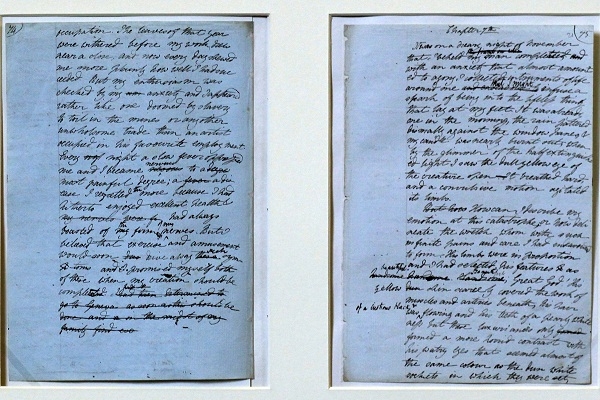The rainforests must be jumping for joy these days. Which is ironic, as they’ve largely got Amazon to thank for it. As the e-book continues its rise, there’ll be less and less demand from publishers for that horrible, immoral, eco-balance-wrecking stuff called ‘paper’. But before the trees get too complacent, they should remember that there’s one group of people who are still curiously insistent that our leafy friends make the ultimate sacrifice: writers. When it comes to one particular stage of the book-writing process, paper remains the only acceptable tool.
It’s perfectly possible these days for a book to be conceived, written, edited, published and promoted without a single word of it ever existing on paper. Laptops and e-readers are all we need. My partner really feels the benefit of this. She produces readings for Radio 4, so is constantly being sent books by publishers keen to enter their horses into the race well before publication. In the old days this meant pile after bulky pile of A4 typescripts (reading on a computer screen gets uncomfortable after a while). Then publishers started offering to email Word documents straight to a Kindle; but font-sizes never seemed to behave properly. The iPad, however, works like a dream, so now our shelves at home can cease their groaning.
One of the major reasons conventional publishing was a waste of paper (at least in the days when technology demanded huge print runs) was that so many books simply got pulped. A title didn’t sell as well as its publishers hoped? A landfill site became a little fuller. Or a motorway – next time you drive the M6 toll road, consider the fact that beneath your wheels there are 2,500,000 unwanted Mills and Boon novels.
So yes, paperless publishing has to make sense. Trouble is, for most writers I know, every book they ever create will require at least a few sheets of the white stuff. Because to read back what they’ve written, they have to print it out. Considering and editing your words on screen just doesn’t feel right. The Sunday Telegraph journalist Nigel Farndale, who also writes books, is typical: ‘You see mistakes you miss on the screen, and you have much more of a sense of the chronology and balance of things, especially the length of the “parts” in a long novel.’ Until three or four years ago Nigel even printed out his journalism, but now confines the practice to his long-haul writing (such as The Blasphemer, his First World War novel shortlisted for the Costa Award).
I’m the same. It is truly bizarre that an error which hides away in pixel-form can leap out when it appears on a page. Repetitions are similarly devious. But my main reason for printing stuff out is that it just reads better that way. There’s something about the sight (or is it the feel?) of your words in hard-copy form that increases your confidence in them, or at least diminishes your fears that you’ve produced the worst bit of prose in the history of writing. Could it be the note of permanence implied by paper? On a screen every last syllable remains instantly vulnerable to the whim of your indecision, linked directly via the keyboard not just to your muse but to your self-doubt. Printing the words out, on the other hand, takes them away from you, gives them a stamp of approval, almost as though they were written by someone else. Someone more talented.
Or perhaps it’s simply that by being on paper your writing is halfway to becoming a book, that is a book as traditionally understood. When we were kids we all produced our own books by stapling together a couple of handwritten sheets, often with a hand-drawn and hand-coloured cover of our own design. (Oh, the days when we could write 70 words and con ourselves they amounted to a novel.) If this is the explanation, it won’t stay valid for many more years. Nigel and I, both in our forties, grew up in a world where ‘writing’ equalled ‘paper’. But as the young readers of today become the writers of tomorrow, surely this equation will cease to be true? For instance when it comes to gauging how far through a work they are – either their own or someone else’s – the scroll bar will replace the number of pages beneath their thumb. They won’t need to feel the heft any more.
The rest of us, meanwhile, will continue to be pagestruck.






Comments